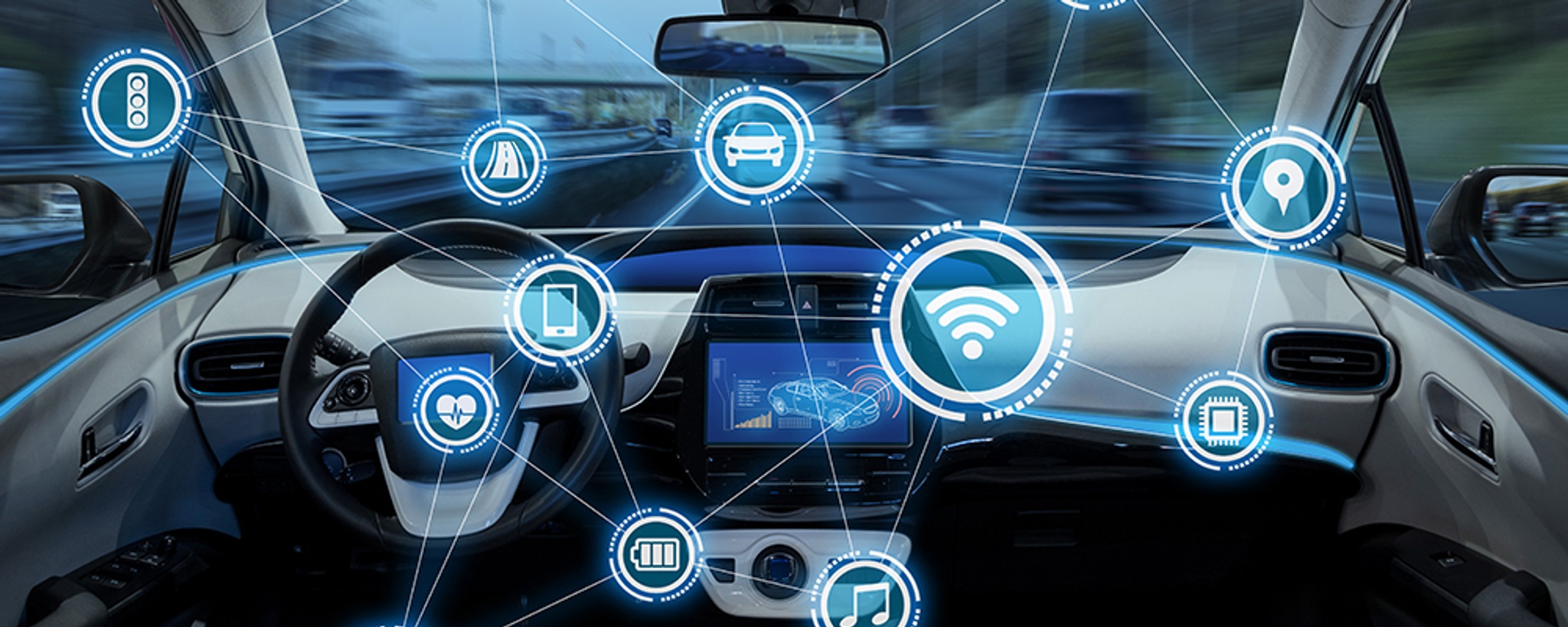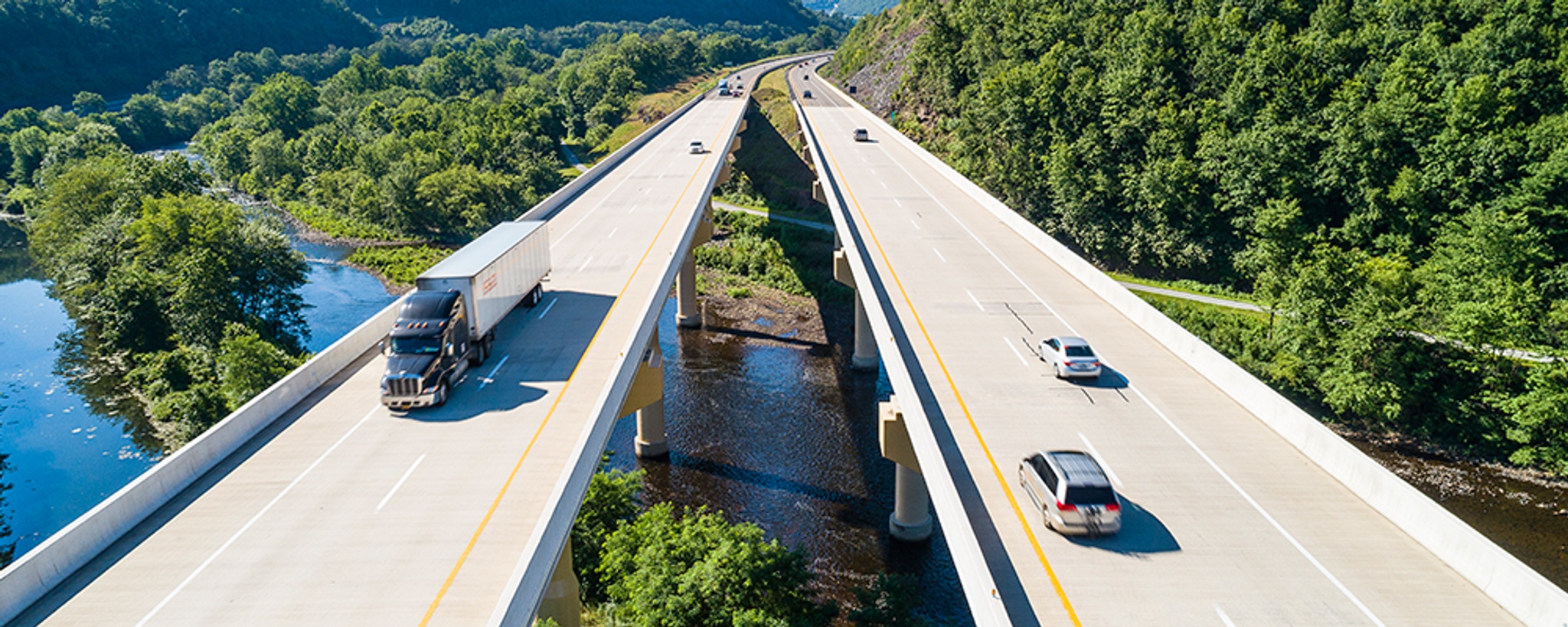Transportation
Navigate forward to interact with the calendar and select a date. Press the question mark key to get the keyboard shortcuts for changing dates.
Navigate backward to interact with the calendar and select a date. Press the question mark key to get the keyboard shortcuts for changing dates.
As every sector of the global economy and nearly every facet of modern society undergo digital transformation, ITIF advocates for policies that spur not just the development of IT innovations, but more importantly their adoption and use throughout the economy. ITIF's work in this area examines how IT can transform not just our vehicles but our entire transportation infrastructure.

Nonresident Senior Fellow
ITIF Center for Clean Energy Innovation and Boston University Institute for Global Sustainability
Read BioFeatured
A Policymaker’s Guide to Connected Cars

While there is much excitement about autonomous vehicles, connected vehicles hold much more promise over the next decade or so. However, absent proactive public policies, especially to enable infrastructure to “talk” to vehicles, the development and adoption of connected vehicles will be suboptimal.
More Publications and Events
January 7, 2025|Testimonies & Filings
Comments to the Departments of Justice and Transportation Regarding Competition in Air Transportation
Populists argue mergers reduced robust competition that travelers previously enjoyed, allowing the remaining “Big Four” carriers to cut capacity, decrease service quality and raise prices. But that narrative could not be more wrong.
January 3, 2025|Blogs
Trump Has Opportunity to Usher In a Golden Age of Transportation By Embracing Automation
From safer roads and efficient railways to streamlined air and sea travel, technology-driven modernization can transform the nation’s infrastructure—if the administration overcomes regulatory roadblocks and special interest opposition.
April 3, 2024|Reports & Briefings
Why Congress Should Enact a Mileage-Based User Fee for Heavy Trucking
With the gradual shift from internal combustion to electric vehicles, it is only a matter of time before the nation will have to replace gas taxes with a vehicle miles traveled system to pay for road maintenance. The most sensible way to start would be with heavy trucks.
March 11, 2024|Podcasts
Podcast: The Interplay of Hype and Skepticism in Autonomous Vehicle Advancements, With Richard Mudge
Amidst the burgeoning advancements in autonomous vehicles, striking a balance between expectation and reality emerges as a challenge.
January 5, 2024|Blogs
Policymakers’ Rush to Blame Technology 15 Years Ago Put the D.C. Metro on the Wrong Track
Despite later investigations finding automatic train operations (ATO) was not to blame for a 2009 accident—and decades of operation without problems—officials have yet to reinstate the technology in the rail system, leaving it and the region’s many commuters reliant on human workers operating trains manually.
December 18, 2023|Blogs
Logic, Not Emotions, Should Guide Autonomous Vehicle Deployment
Autonomous vehicles stand out as they offer the potential to reduce accidents & improve urban mobility. Policy decisions need to encourage this potential, rather than being swayed by emotional reactions to isolated events.
July 19, 2023|Presentations
Innovation Highway: Unlocking the Social and Economic Benefits of Autonomous Vehicles
Daniel Castro speaks about autonomous vehicle adoption at an event hosted by U.S. Chamber of Commerce.
April 24, 2023|Op-Eds & Contributed Articles
Technology Investments Should Be a Priority in Rail Safety Act
Congress should include support for autonomous track geometry measurement system in the Railways Safety Act to prevent future accidents. By investing in the development and testing of innovative technologies, Congress can help ensure that the nation’s rail system is safe and reliable.
September 23, 2022|Testimonies & Filings
Comments to the Federal Railroad Administration Regarding Train Crew Size Safety Requirements
The proposed rule, while written to suggest that it will enable rail innovation and the operation of less-than-two-person crews, will in fact likely stifle continued rail innovation and limit any expansion of one-person crews and the economic productivity that generates.
June 13, 2022|Blogs
If Congress Wants to Help American Workers, It Should Not Require Two-Person Train Crews
As technology such as Positive Train Control systems has improved, and further advances in autonomous systems look promising, freight rail companies would like the flexibility of operating trains with less than two operators, not so they can raise profits, but so they can reduce prices to better compete with the trucking sector.



